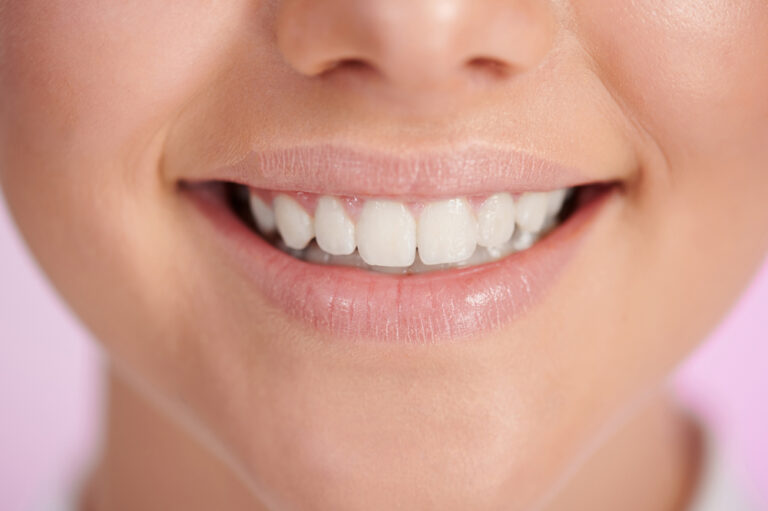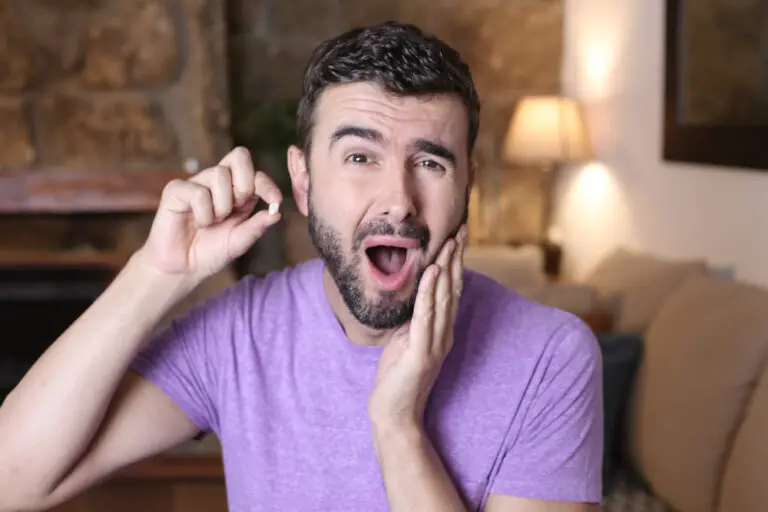Are you having a dental procedure that requires a local anesthetic? If so, you are probably wondering how soon will your mouth function normally again. How long does it take for dental numbing to wear off?
This depends on a range of individual factors. However, there is a general timeline that can be applied in most cases. Continue reading this article to discover how long it will take for the numbness to wear off and your mouth to feel normal again.
Dental Anesthesia
Anesthesia means loss of sensation, which is required in some types of dental procedures that would otherwise be too painful. In dentistry, local anesthesia is the most commonly used anesthesia but sometimes a patient may require sedation or general anesthesia.
If you need dental anesthesia, it is either injected into your gum or applied topically. A topical application will provide some numbing, but it is not as effective as injecting the anesthetic, which is why injections are used more often.
You may need dental anesthesia if you need, for example, a cavity filling or root canal treatment. Local anesthesia is the best option for these kinds of treatments as it works quickly and it will not affect your consciousness. It means you are awake during the procedure but will not feel any pain because of the anesthetic.
How Long Will the Numbness Last?
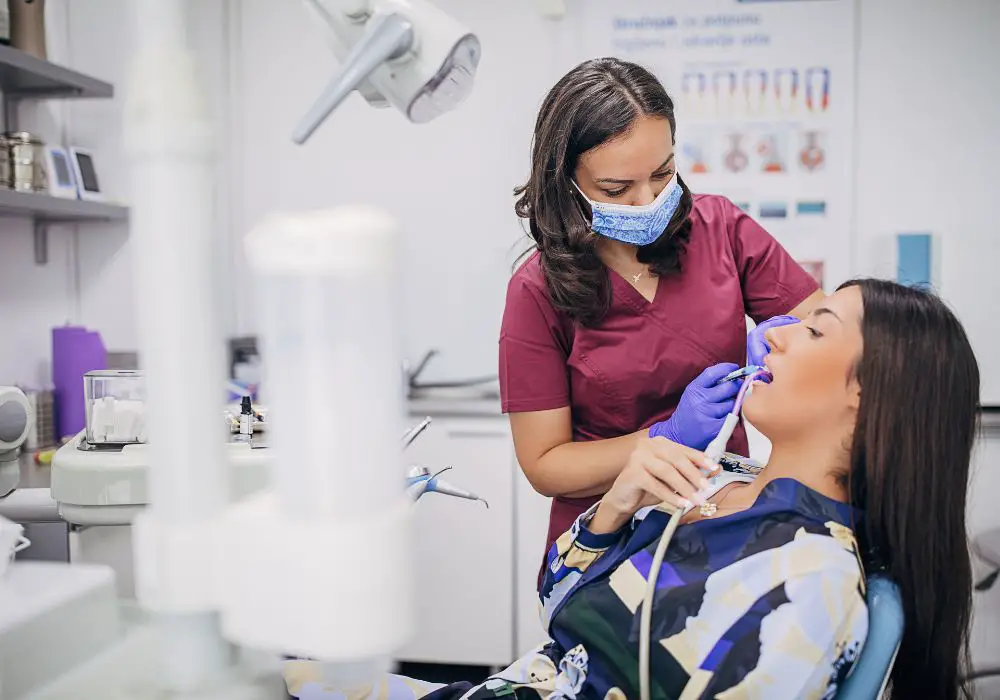
The exact duration depends on different factors but in general, you can expect your gums to be completely numb between one and two hours, depending on how much anesthetic your dentist needed to use. However, you may feel general numbness in the area for up to five hours.
The Dose
How much dental anesthetic you need depends on the treatment you are having. For example, you will need a stronger dose of anesthetic for a deep root canal treatment than for minor procedures such as filling a dental cavity. The dose may also need to be bigger if the treatment area covers a larger part of your mouth.
Individual Factors
Each person is different and for some people, the effect will last longer than for others. The duration of the numbness varies because our bodies break down the anesthetic at different speeds. Factors that affect the breakdown speed include our age, metabolism, and weight. Some disorders can also slow down the breaking down of the anesthetic.
Epinephrine
Epinephrine is used to constrict blood vessels to reduce blood flow to the site of the injection. It will also help keep the anesthetic in the area that is about to be treated rather than let it spread elsewhere in your body.
Are There Side Effects to Local Anesthesia
You are unlikely to experience side effects besides numbness after local anesthesia. In some rare cases, some damage to nerves can occur during the dental procedure. This can happen if you have atypical nerve tissue that gets irritated during oral surgery and it may cause numbness to last much longer than normal, sometimes months.
In some patients, local anesthesia may also cause dizziness, heart palpitations, bruising, swelling, itching, redness, or other type of allergic reactions. These are not very common but if you have any concerns, you should talk to your dentist before the procedure.
If you have high blood pressure, talk to your dentist about it before the procedure because the epinephrine used in many local anesthetics can increase your heart rate. You also need to let your dentist know if you are on any medication, pregnant, or could be pregnant.
Sedation
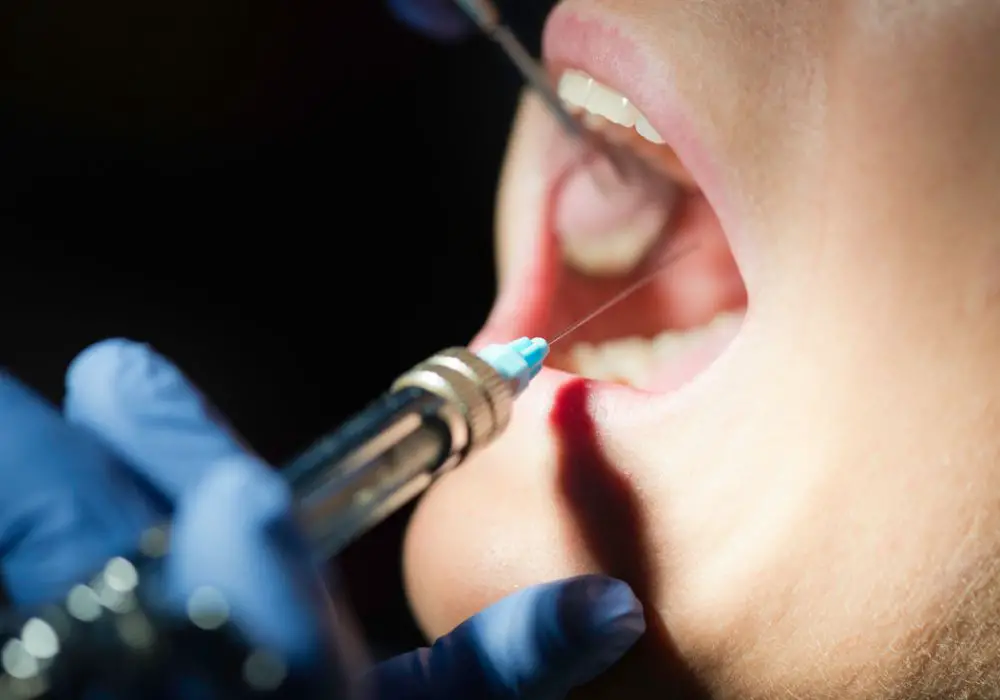
While local anesthetic is used more, sometimes it may be necessary to sedate a patient. When you are sedated, you might or might not be conscious. In either case, you are likely to feel disoriented after. This may last around an hour but you may feel side effects from sedation for up to eight hours.
Just like with the local anesthetic, individual factors affect how quickly you feel normal after being sedated. If you are in good health generally, you are likely to metabolize the medication quicker and feel normal sooner. Recovery may take longer if you are not in good general health.
Regardless of the time it takes you to recover and feel normal again, you should exercise caution after sedation. Most doctors will tell you not to do heavy physical activity or drive for 24 hours following the sedation. This will ensure the sedatives have had time to completely leave your system first.
Types of Sedation
You could have different types of sedation when you need a dental procedure. Oral sedation is administered in the form of a tablet which you will take before your appointment. Alternatively, you might receive intravenous sedation or inhale the sedative.
The inhalation method uses nitrous oxide, also known as laughing gas. You will breathe it in through a mask, which is connected to an apparatus dispensing the nitrous oxide. You will feel the effects in just a few minutes. When the gas flow stops, it will take a few minutes to recover. You are likely to feel slightly disoriented while the effects wear off.
When is Sedation Used?
A dentist may choose to sedate a patient instead of using a local anesthetic if the person is very nervous about the dental procedures or needles. Depending on the type of sedation used, you will either be conscious or completely unconscious during the treatment.
General Anesthesia

If you need general anesthesia for dental surgery, you will have the procedure carried out at a hospital rather than at a dentist’s office. When you have general anesthesia, you are likely to have to stay in the hospital for several hours, or in some cases, a few days to allow the medical staff to monitor your recovery.
Waking up from a general anesthetic happens gradually and you are likely to feel very drowsy as you wake up. It can take from several hours to several days for the anesthetic drug to completely leave your system.
You are likely to experience side effects including slow reflexes, muscle fatigue, slight confusion, and headaches for up to 48 hours after general anesthesia. During the recovery period, you need to avoid vigorous physical activity, alcohol, and driving.
When is General Anesthesia Used?
Because there are risks involved with this method, general anesthesia is only used for the most complex procedures. It can also be used with extremely nervous patients who would not be able to go through the treatment otherwise. During general anesthesia, your muscles are fully relaxed and you will have no recollection of the procedure.
Is it Possible to Get Rid of Dental Numbness Faster?
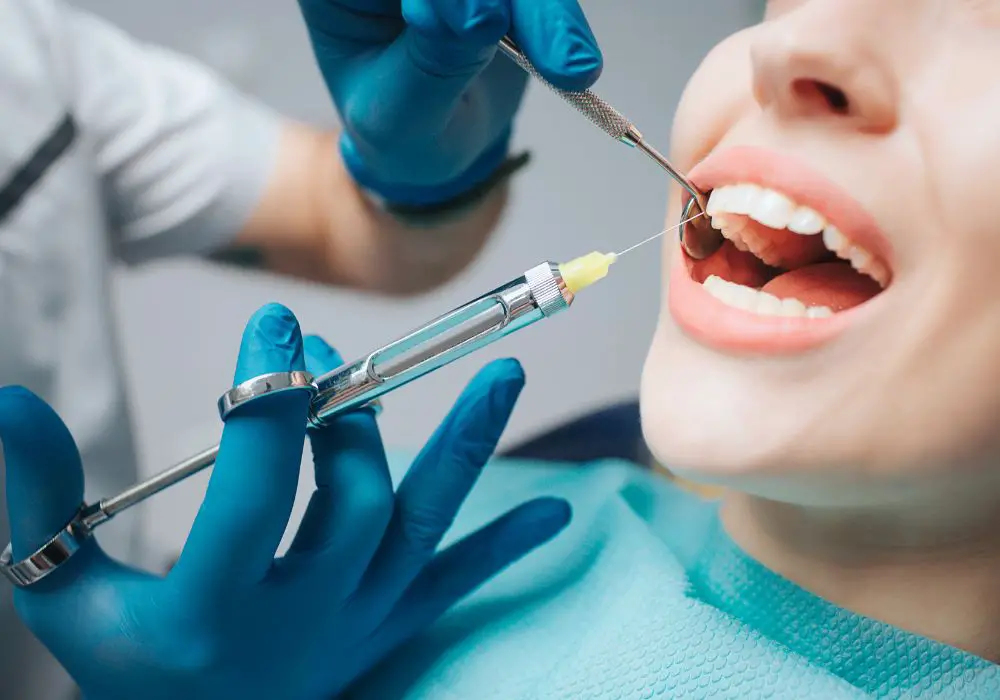
The effects of local anesthetic can be unpleasant. While the numbness lasts, you are also more likely to bite your tongue, lips, or cheek and cause a wound. There are some things you can do to help the numbness wear off faster.
Massage the Area
One of the best ways to reduce the numbing sensation is to increase blood flow to the affected area. You can do this by gently massaging the area. However, avoid the injection site as this may result in it feeling more sore when the anesthetic has worn off.
Use a Warm Compress
You can also get more blood flowing into the area by using heat. It can also be very soothing, especially if you are starting to get some feeling back. Apply a warm compress on the treatment area for approximately twenty minutes.
Do Something Physical
While you want to avoid doing strenuous physical activity after your dental procedure, doing some moderate exercise is another effective way to increase blood circulation. Going for a walk or doing some gentle yoga are good examples of exercises you can do after a dental operation to flush anesthetic medication out from the injection site.
Talk
Your words may come out slightly funny or you might slur a little after a local anesthetic but talking may help reduce the numbness. As you move your mouth, the blood starts pumping into the area.
Reversal Injection
You can also ask your dentist about a reversal injection, which reduces the recovery time by about half. Note that not all dentists offer reversal injections and also that it will cost you extra. It may also mean your mouth will feel more sore after an additional injection.
Conclusion
When your mouth is left numb after a dental procedure, it is normal to want it to wear off as quickly as possible. How long the effects last will depend on your health, the type of procedure, the size of the area treated, and the dose administered.
While you are likely to feel some side effects after sedation or general anesthetic, most people will not have other side effects than numbness following a local anesthetic. You can help it to wear off sooner by, for example, massaging the area, wearing a warm compress, or asking your dentist for a reversal injection.


